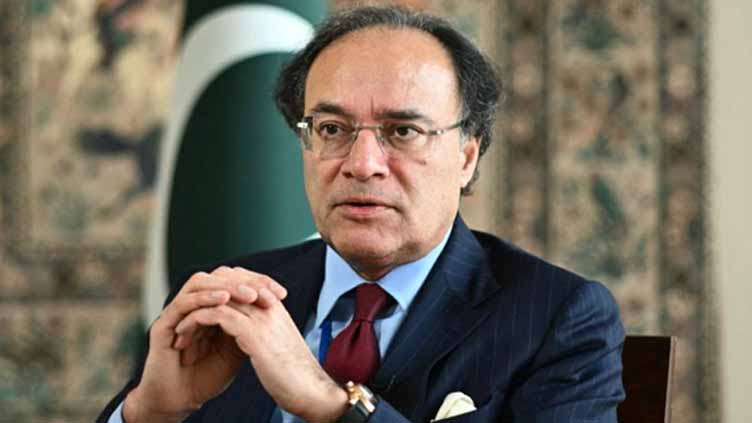Pakistan can't be run sans taxes: Aurangzeb

Business
FM deems private sector’s advancement in every filed necessary.
ISLAMABAD (Dunya News) – Finance Minister Muhammad Aurangzeb said on Tuesday that country couldn’t be run through charity as taxes were necessary for smooth functioning of state matters.
He was speaking at a ceremony in Islamabad. The finance minister said that the government would reach a staff-level agreement with the International Monetary Fund (IMF) at the end of this month, adding that the government would push the global lender for the climate financing afterwards.
“Pakistan is included in the list of countries battered by climate change. Pakistan will also have to take measures for controlling population along with climate action,” he emphasised.
He said that the bureaucracy was omnipresent, therefore he deemed private sector’s advancement in every filed necessary.
Pakistan to reach new $7 billion loan deal with IMF
Pakistan is expected to reach a staff-level agreement with the IMF for a new $7 billion loan with the International Monetary Fund (IMF) to support its economy as well as deal with its debts.
Earlier this year, the IMF approved the immediate release of the final $1.1 billion tranche of a $3 billion bailout to Pakistan. Finance Minister Muhammad Aurangzeb said the government planned to seek a long-term loan to help stabilise the economy after the end of that bailout package.
The new loan deal will last for 37 months. It is aimed at strengthening fiscal and monetary policy as well as reforms to broaden the tax base, improve the management of state-owned enterprises, strengthen competition, secure a level playing field for investment, enhance human capital, and scale up social protection through increased generosity and coverage in a major welfare program, the IMF said.
“The program aims to capitalise on the hard-won macroeconomic stability achieved over the past year by furthering efforts to strengthen public finances, reduce inflation, rebuild external buffers and remove economic distortions to spur private sector-led growth,” said Nathan Porter, IMF’s mission chief to Pakistan.
The agreement is subject to approval by the IMF’s executive board.
Pakistan’s new coalition government presented its first budget in parliament last month, promising an increase of up to 25% in the salaries of government employees and setting an ambitious tax collection target.
The finance minister said Pakistan wants to collect 13 trillion rupees ($44 billion) in taxes, which would be 40% more than in the current fiscal year.
Aurangzeb also said the government will ensure that the number of taxpayers increases. Only about 5 million people in Pakistan pay taxes.
Analysts said the new budget of about $68 billion — up from $50 billion in the last fiscal year — was aimed at qualifying for a long-term IMF loan of $6 billion to $8 billion to help stabilize the economy. Pakistan in 2023 nearly defaulted on the payment of foreign debts.


